Equity through Community Banking
Community banking
As you drive through your town, you’ve likely noticed community banks without even realizing you’re passing them. A community bank is exactly what it sounds like – a smaller, locally owned and operated bank that serves those in a particular area or community.
There are a few major differences between community banks when compared to regional and national banks. Community banks cannot serve customers out of state and instead focus on serving a specific set of customers in their area. For this reason, community bankers tend to understand the economic conditions of the area as well as the people who live there. This understanding makes community banks more likely to loan to borrowers in their community based on familiarity and family history rather than credit scores or traditional financial metrics. Additionally, community banks are small businesses themselves, making them more small business friendly. Community banks are a critical part of a healthy financial community because they are able to use traditional banking activities to pour back into their respective communities without some of the barriers that come with regional and national banks.
Banking and systemic discrimination
Most importantly, community banks are often located in underbanked communities in rural areas or inner cities. In urban, inner-city areas, community banks often serve a large Black population, which is significant as the Black community has been historically discriminated against financially, largely by regional and national banks. In an interview with NPR, Black bank owner Sidney King points out that many Black communities often feel big, national banks aren’t for them, as their parents and grandparents didn’t have banking relationships due to this systemic bias. Community banks that serve Black individuals are often also minority or Black-owned and can be vital to rebuilding trust between financial institutions and the Black community.
What now?
Unfortunately, race-based discrimination in banking still exists. Last year in Memphis, 13% of Black shoppers were denied a mortgage, while only 5% of white shoppers faced the same rejection, and predatory mortgage lenders are still more likely to target people of color.
United Housing has always worked to break down barriers that traditionally underserved Memphians face in the homeownership industry. Through loan programs like our new Build Bold Fund, we hope to raise money and forge partnerships with community banks to support individuals who cannot get approved for a loan through a regional or national bank. Another great way to combat financial inequity in your community is by supporting and investing in your local community bank. By opening a checking account or taking out a loan through a community bank, you are pouring your resources back into your neighborhood and the people who call it home.
Community banks give Memphians of all backgrounds the opportunity to be approved for loans and less likely to turn to potentially predatory lenders for financial help. To learn more about being approved for a loan, contact United Housing today at 901-272-1122.
